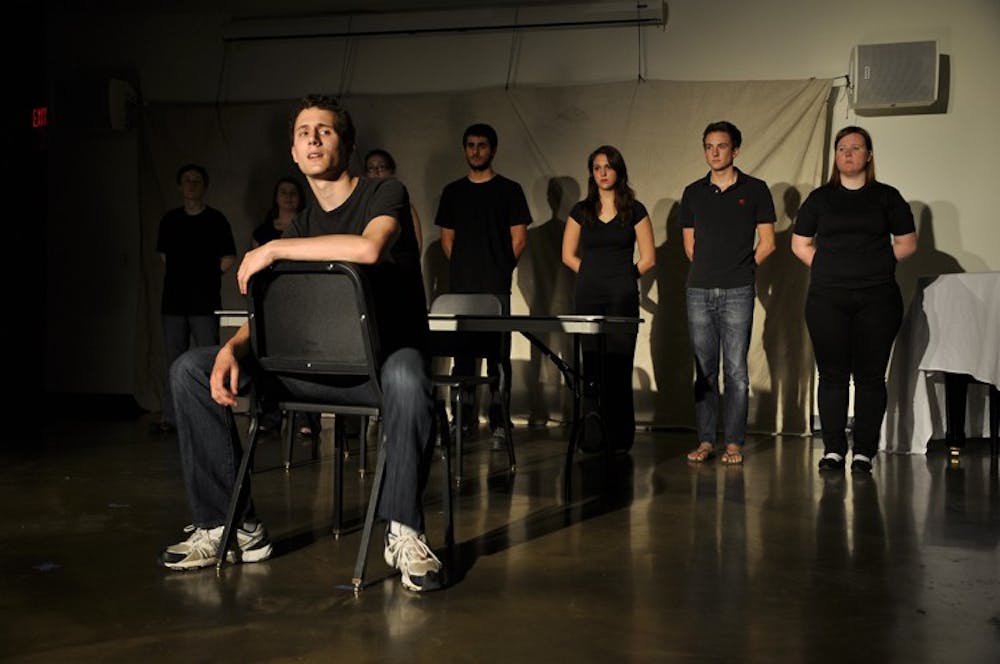Since it fits a multitude of lessons and morals into 90 minutes, it makes sense that AU Players’ series “Heaven and Hell: A Divine Comedy” began, and stayed, at a slightly frantic tempo.
Each scene is timed to the second and one flows freely into the next with minimal lag time. Through the play, audiences got the feeling that none of the scenes meant to overstay its welcome and that the main theme was to get the point across and move on.
Commencing with an amusing monologue about the perils of growing older while fighting to stay young, the series of vignettes all carry a central driving theme: the choices we make in coping with the situations presented to us.
Each section functions independently and centers on a confused character or two, running around, trying to figure out how his or her place in the world and the decisions he or she makes will affect the world.
The sections also touch on the existence of God, heaven and hell, but more make allusions to them as terms in real life, rather than affording them religious meaning.
The acting within the sections was uniformly good, but some of the performances were more affecting than others, although this might have been due to the action within the scene, rather than the pure skill of the performer.
The best sketches were the ones that seamlessly blended comedy and drama, performances that were able to find humor in tragedy and recognized the frequent duality of the two in life.
One particularly touching sketch featured a boy’s monologue in mid-flight, after committing suicide by jumping off of a bridge. While the horror of this is acknowledged, the actor skillfully discussed the experience of dying and deftly injected the frequently felt humor and regret of hindsight: what he might have done differently before jumping (to make the tragedy of the act more widely felt), the regret he felt after developing clarity of death and the fluid movement of time.
Though the scene ended in dark tragedy, with the boy hitting the ground after running out of time, both the actor and the language described how closely related sadness and comedy are and how at any moment, both feelings can be found.
Similarly, albeit less tragically, the same theme can be applied to another vignette, in which a girlfriend comes across her boyfriend’s scandalous flirtations online and confronts him about it.
In this scene, both actors portray the characters’ emotions very well and deliver the dual message of comedy and sadness easily. The audience alternatively laughed and went silent, as the emotion of the scene changed at the drop of a hat, like they often do in reality.
While some of the vignettes relied too heavily on the crutch of heaven and hell, others worked them more skillfully into the material and made the audience think about life and the multitude of complicated emotions they feel throughout it.





